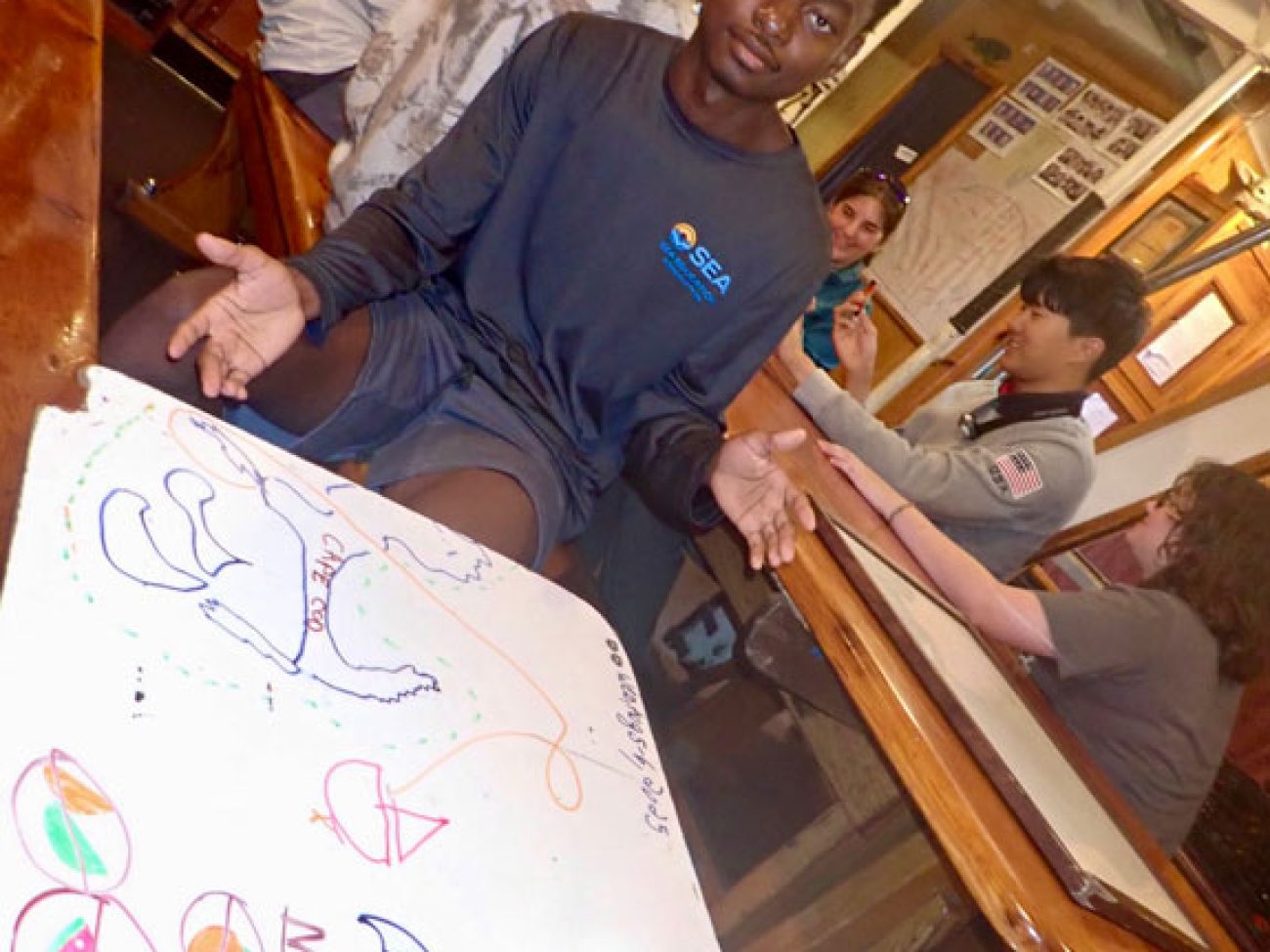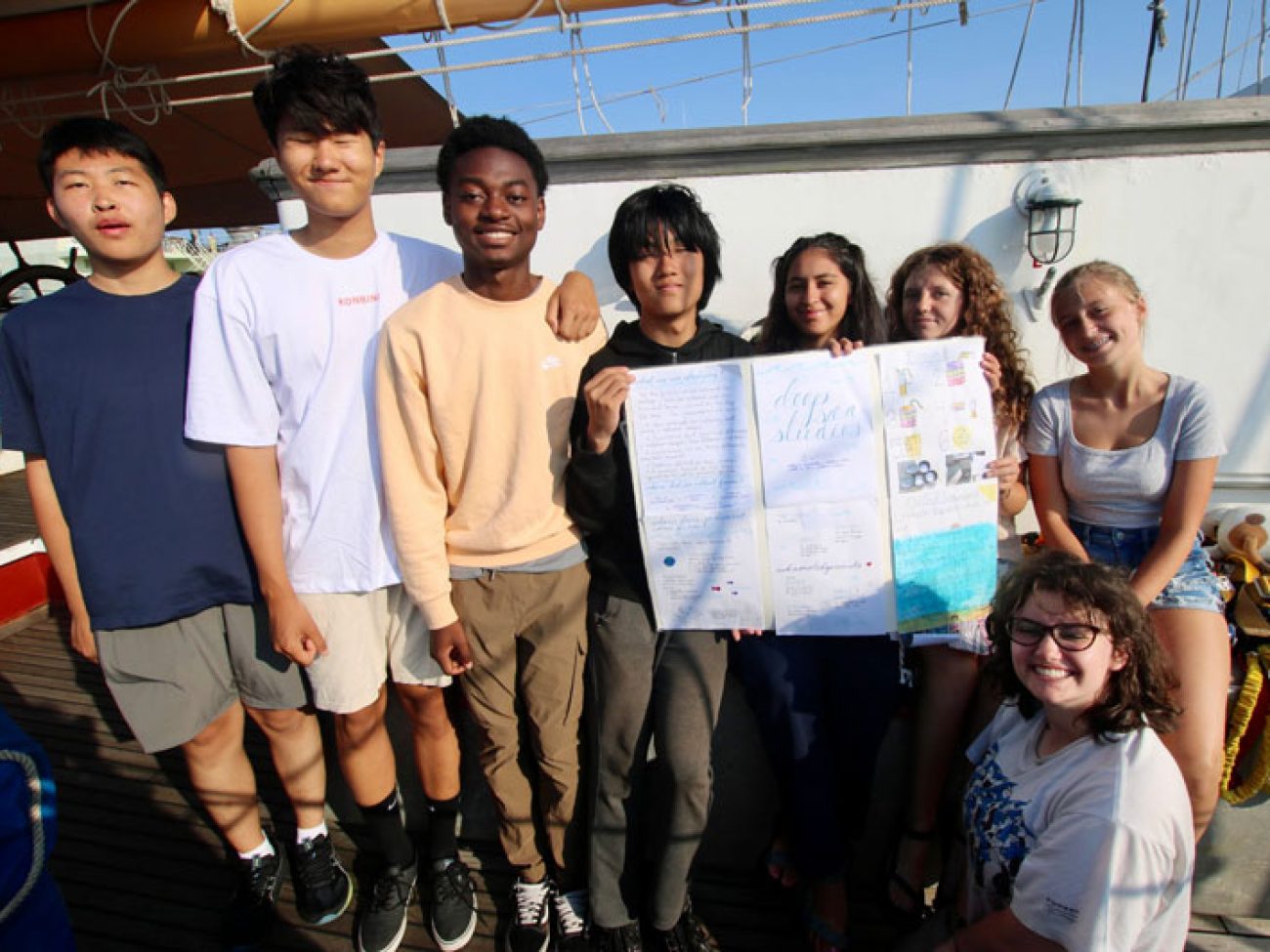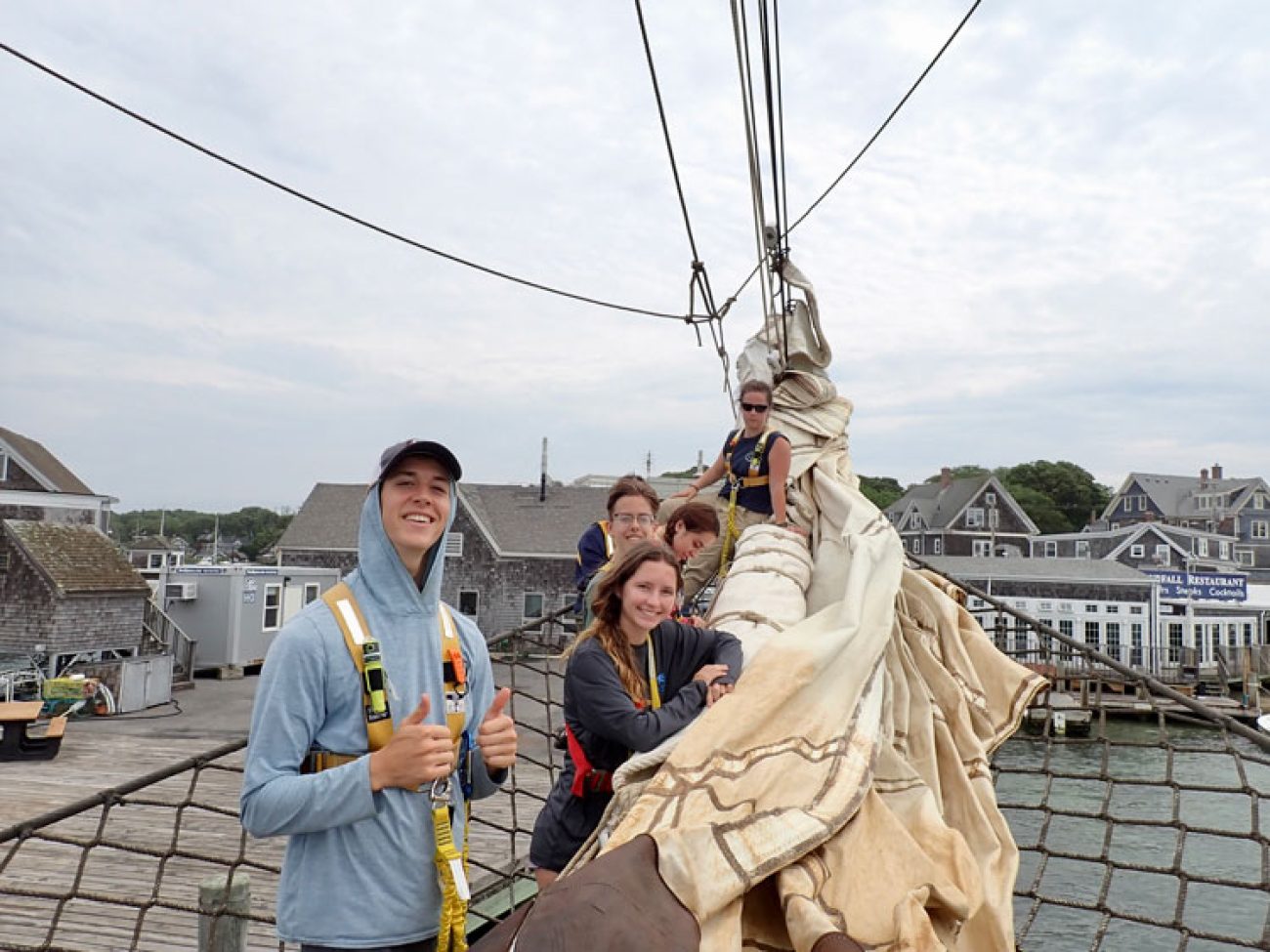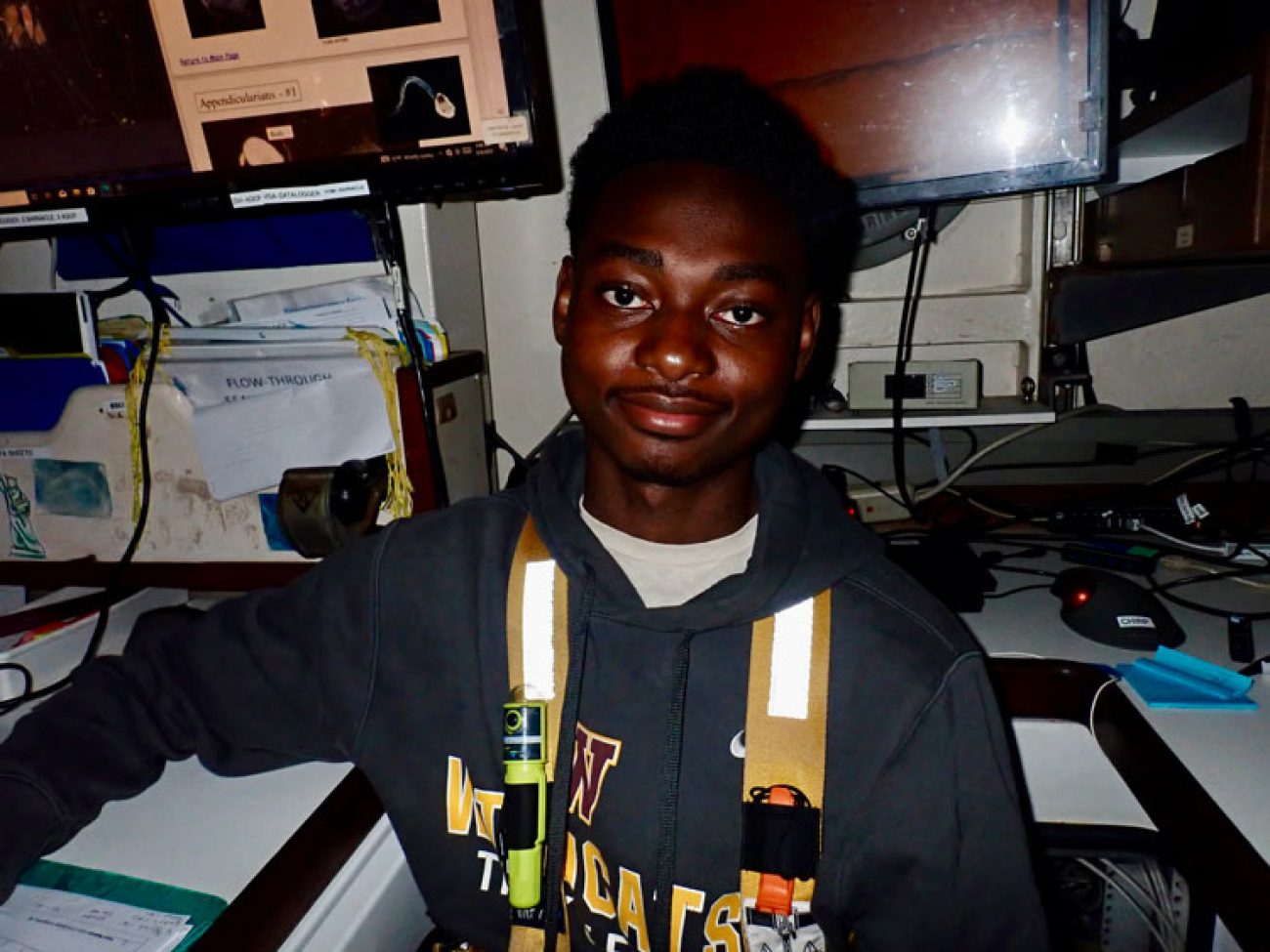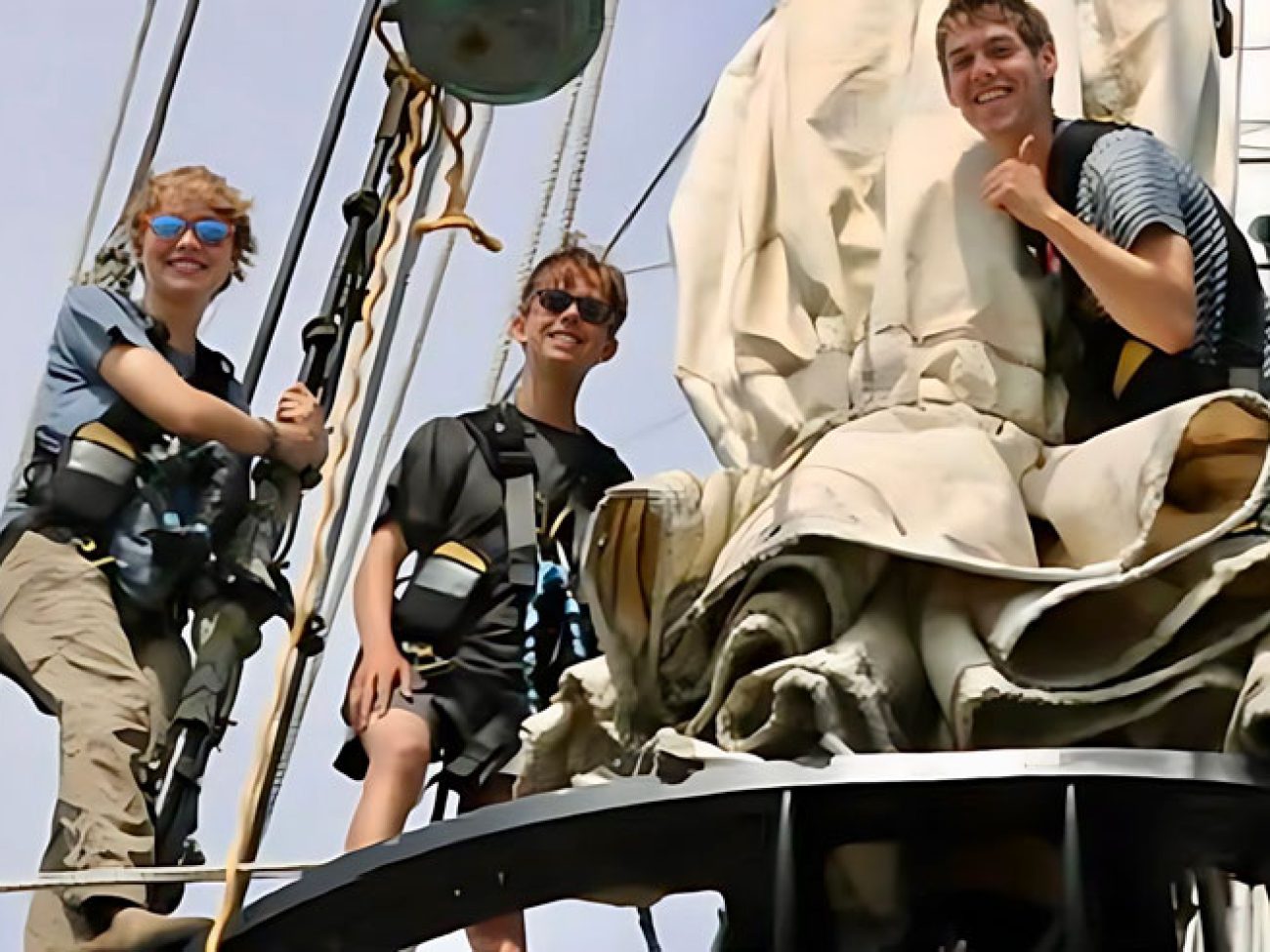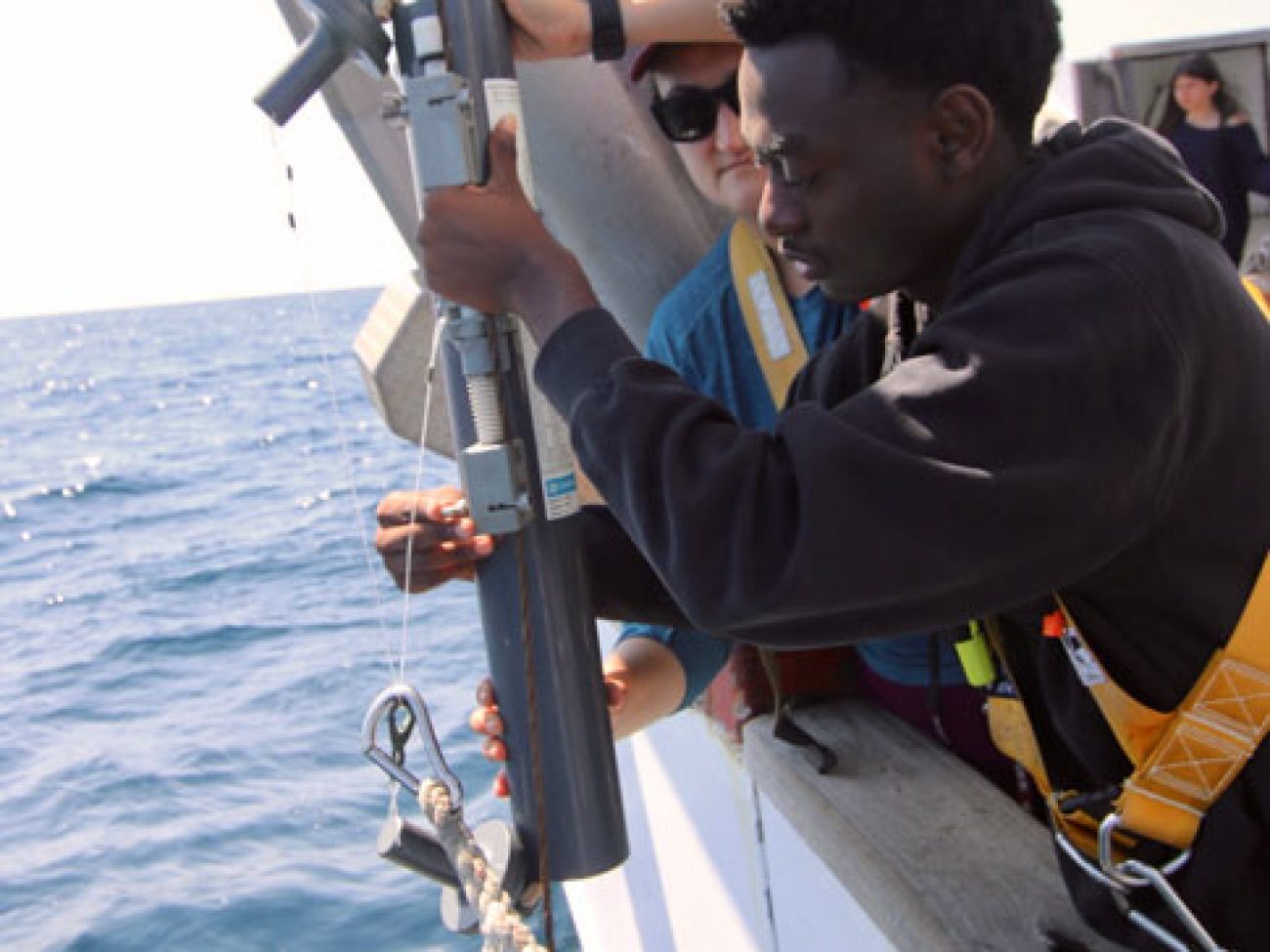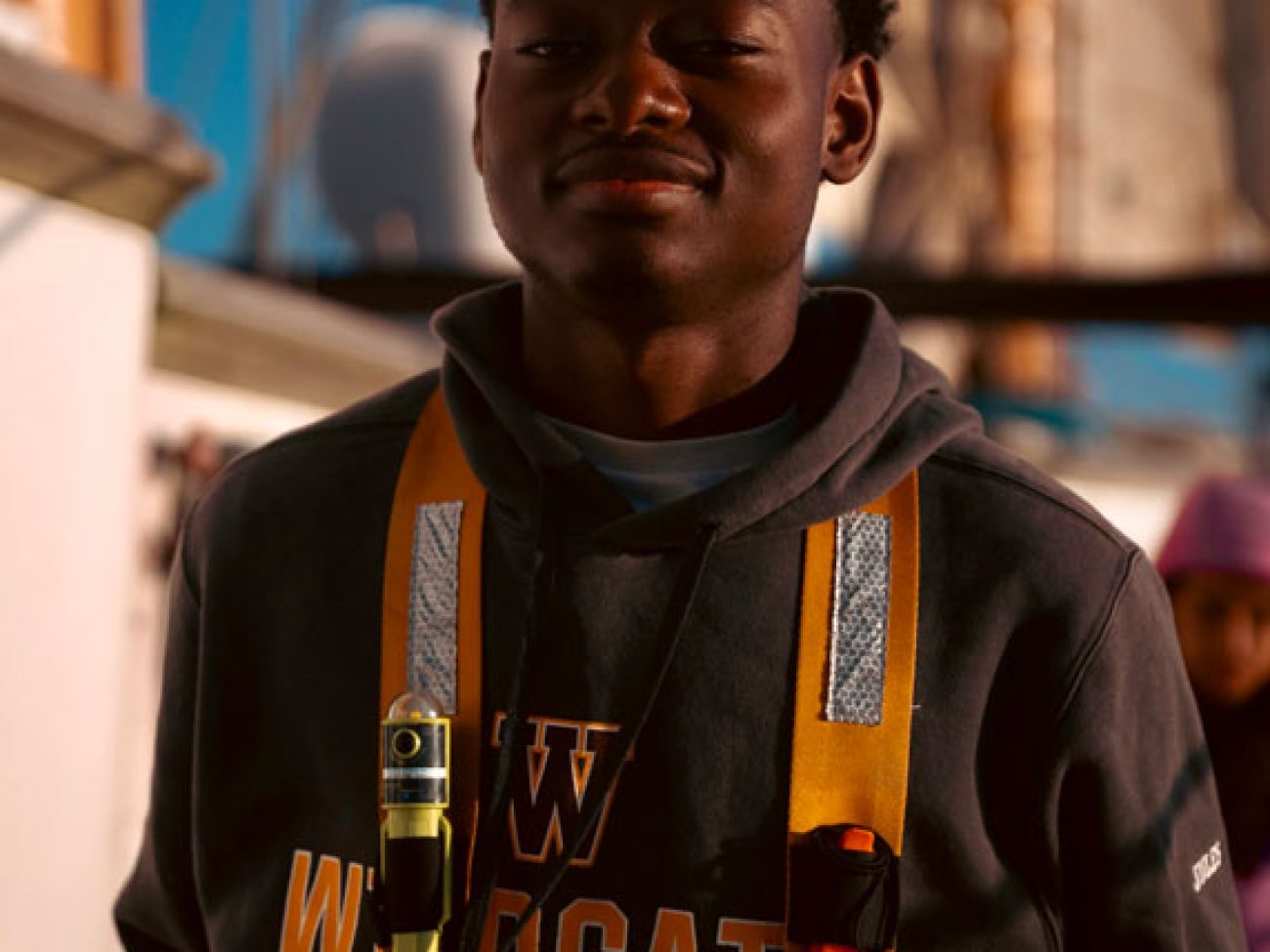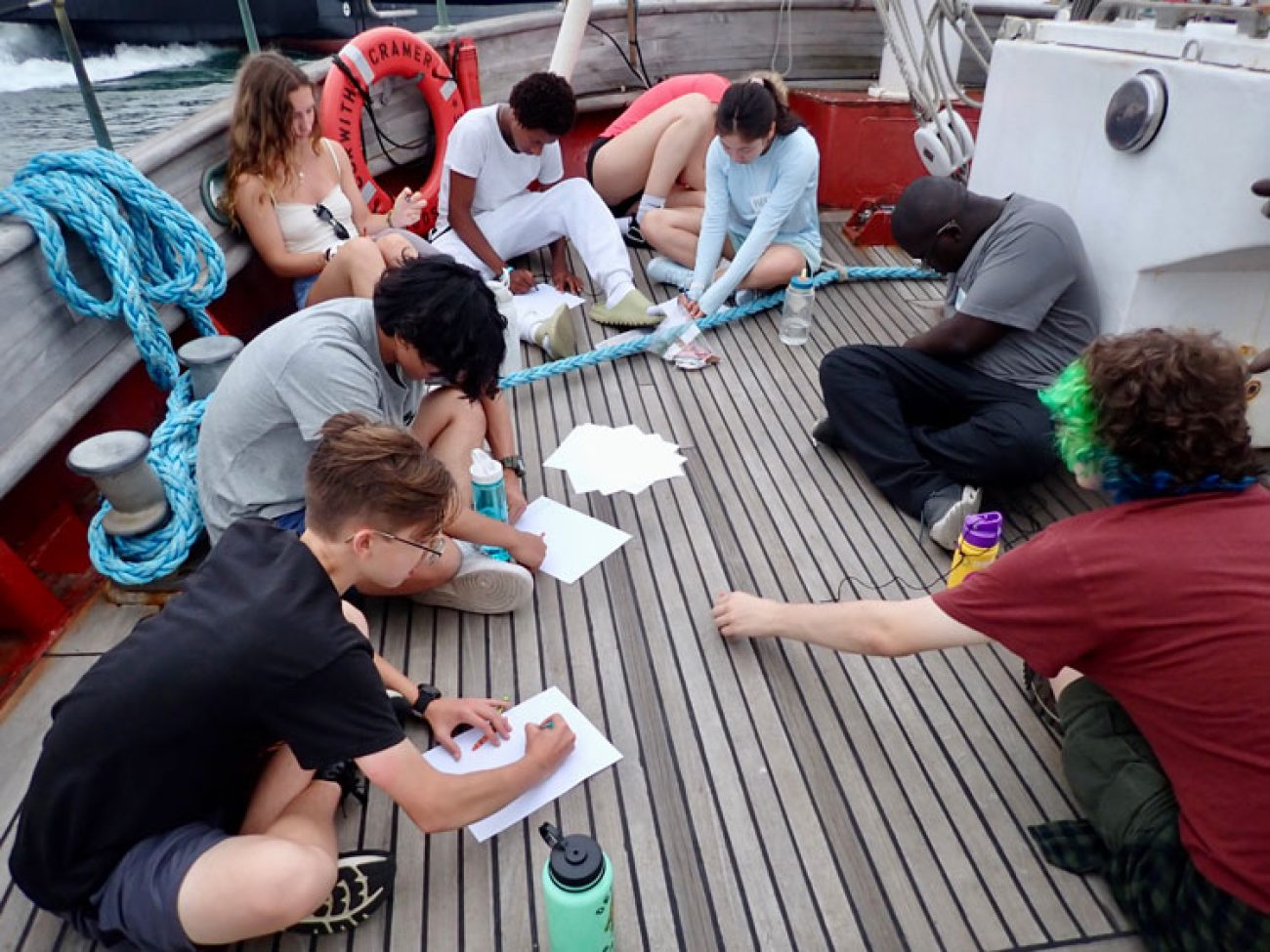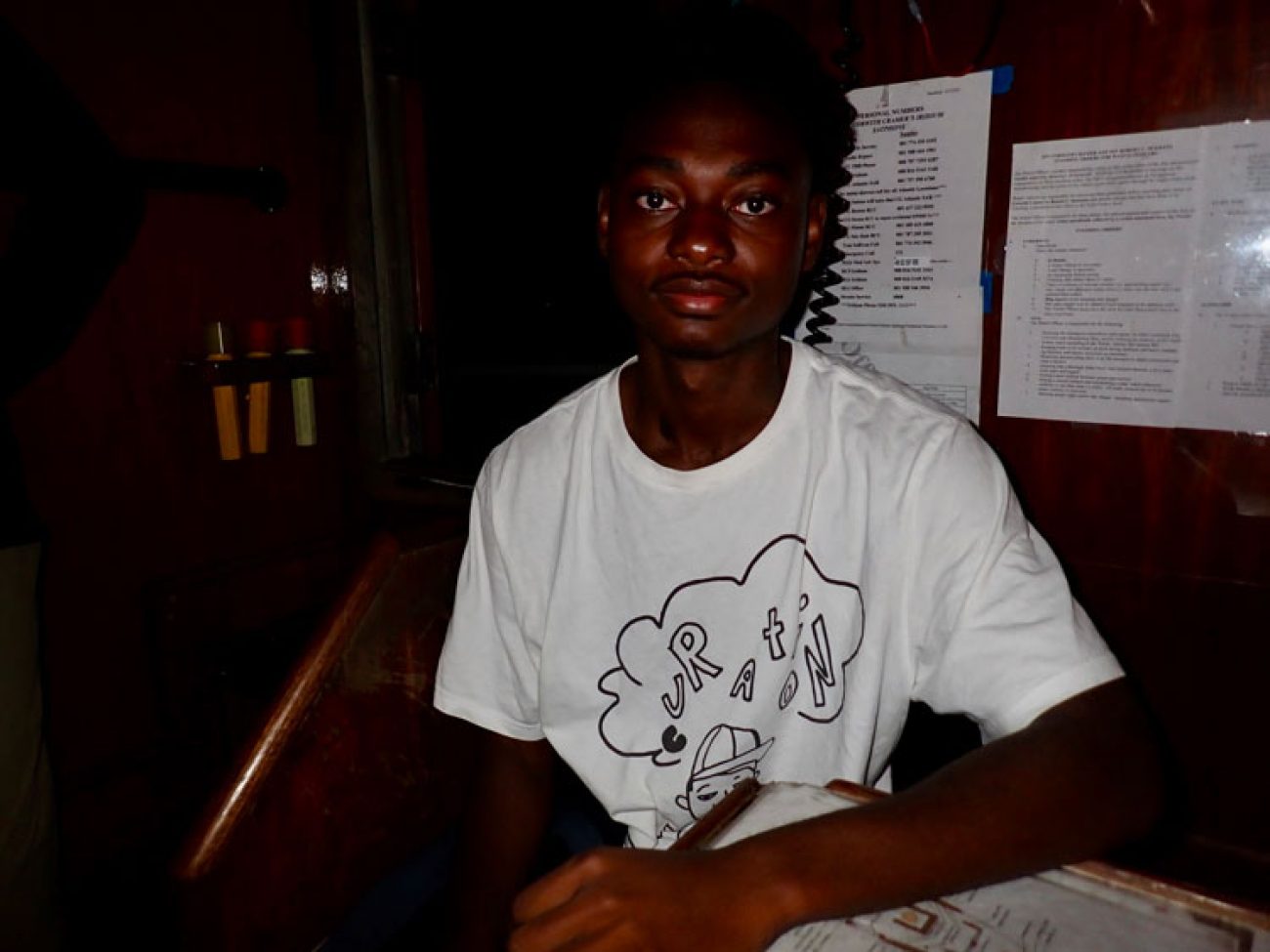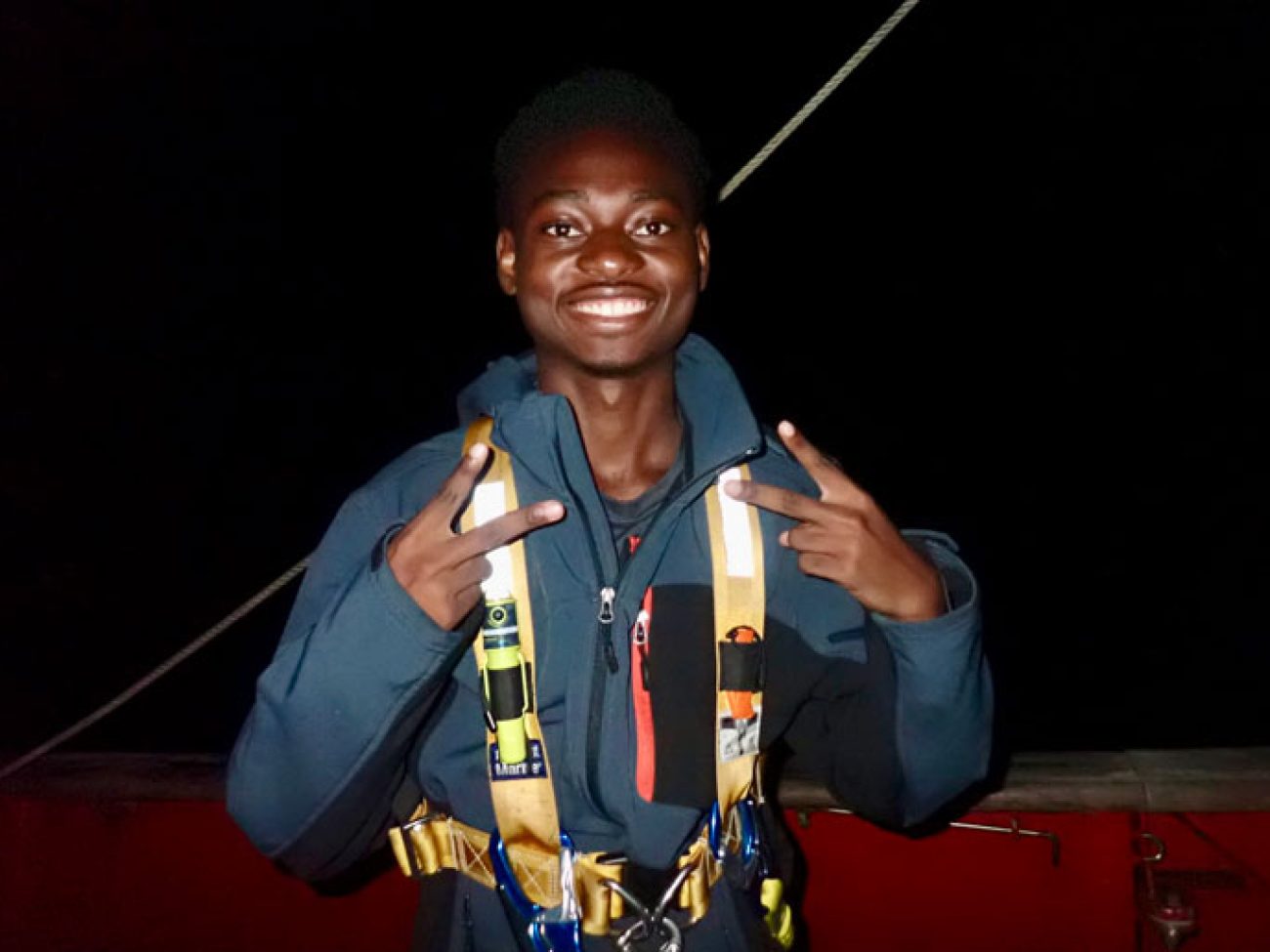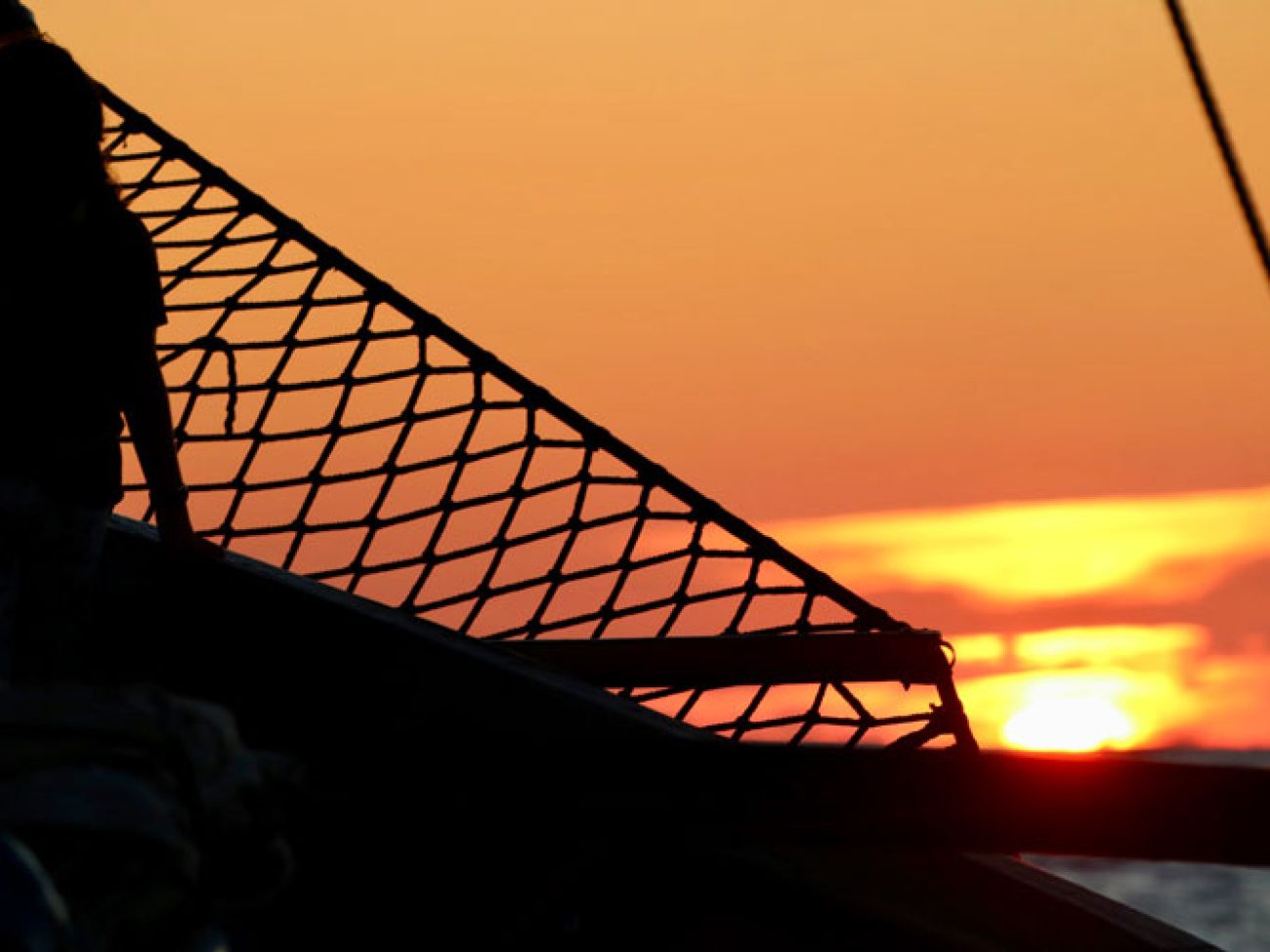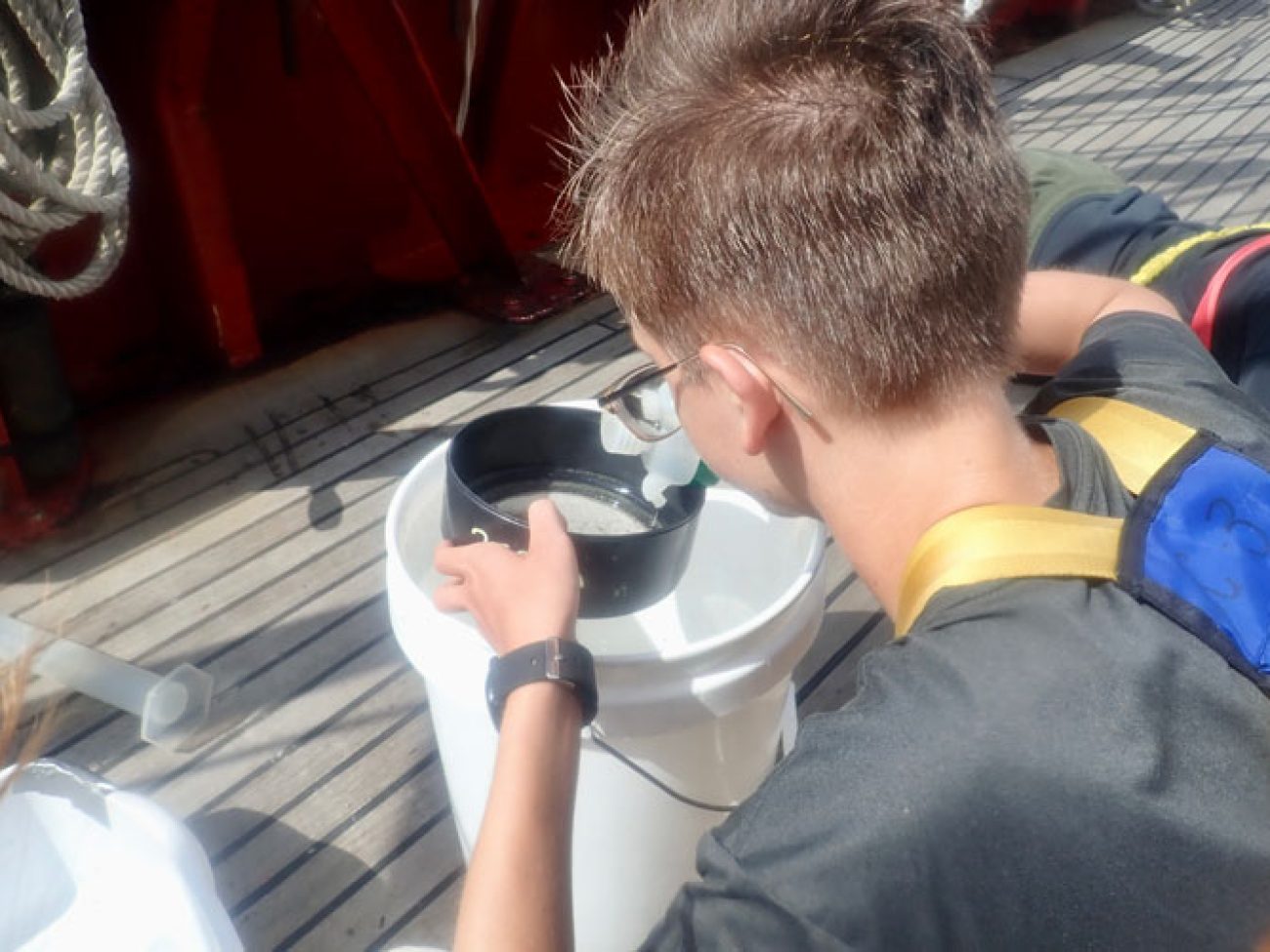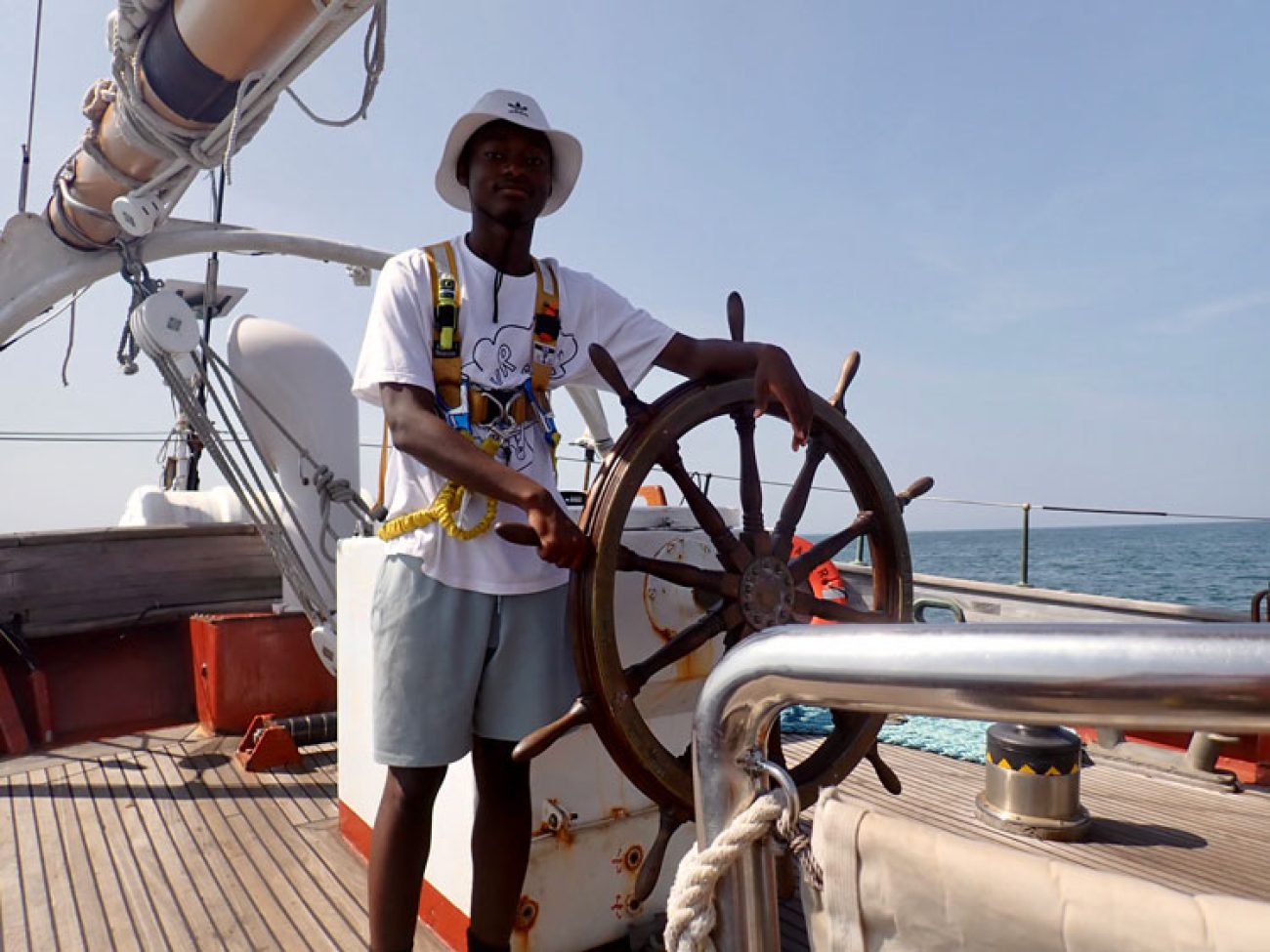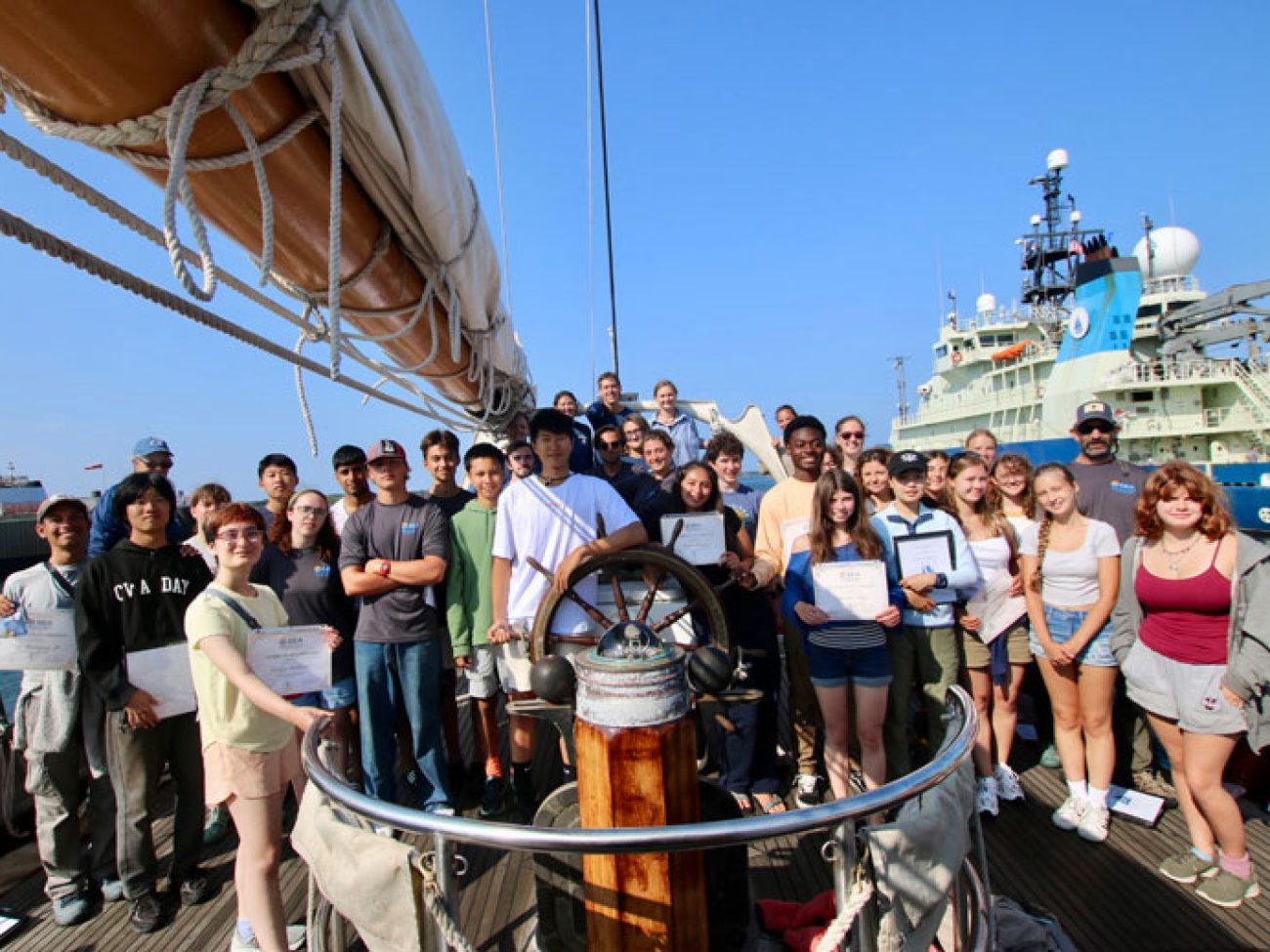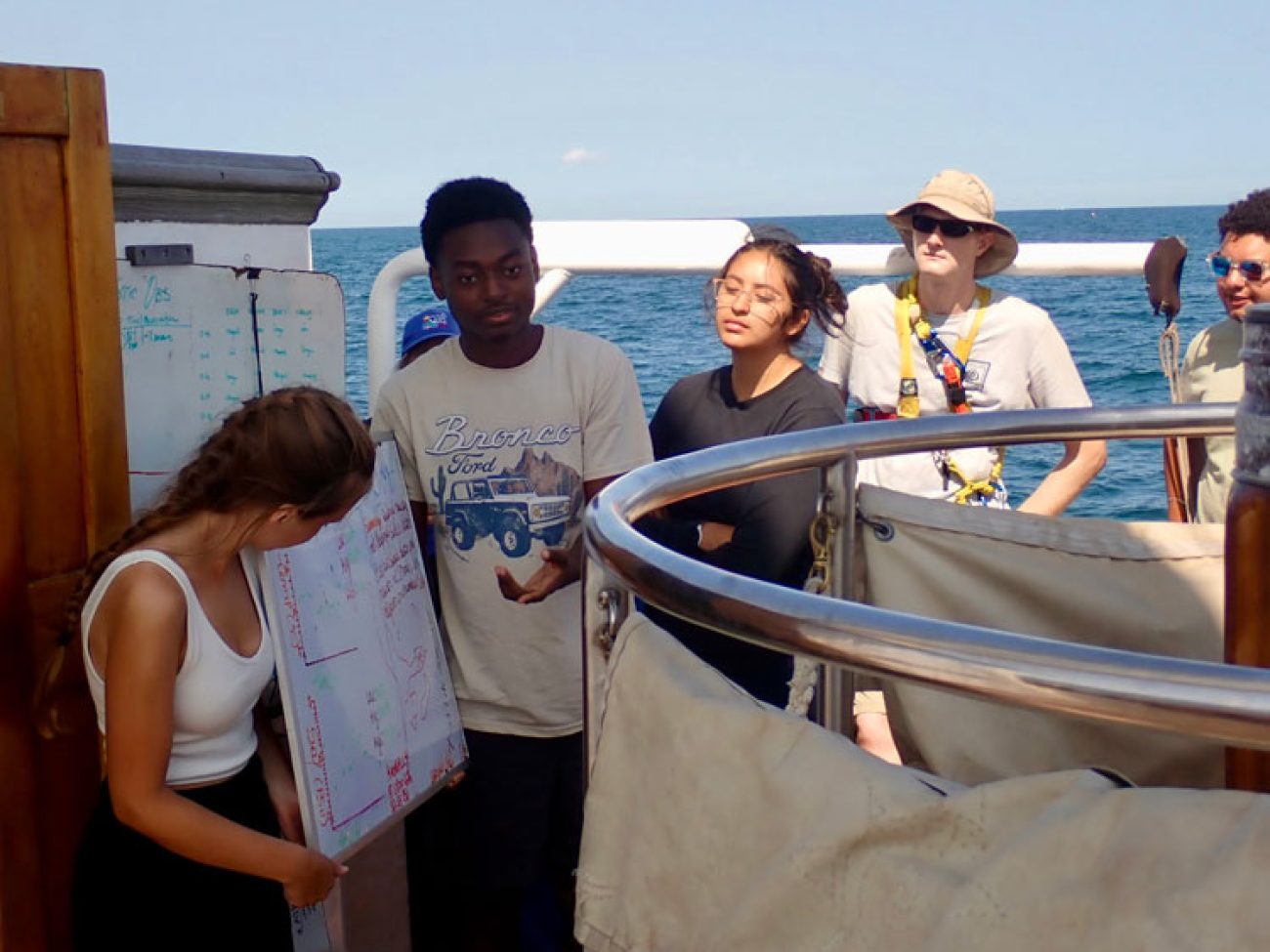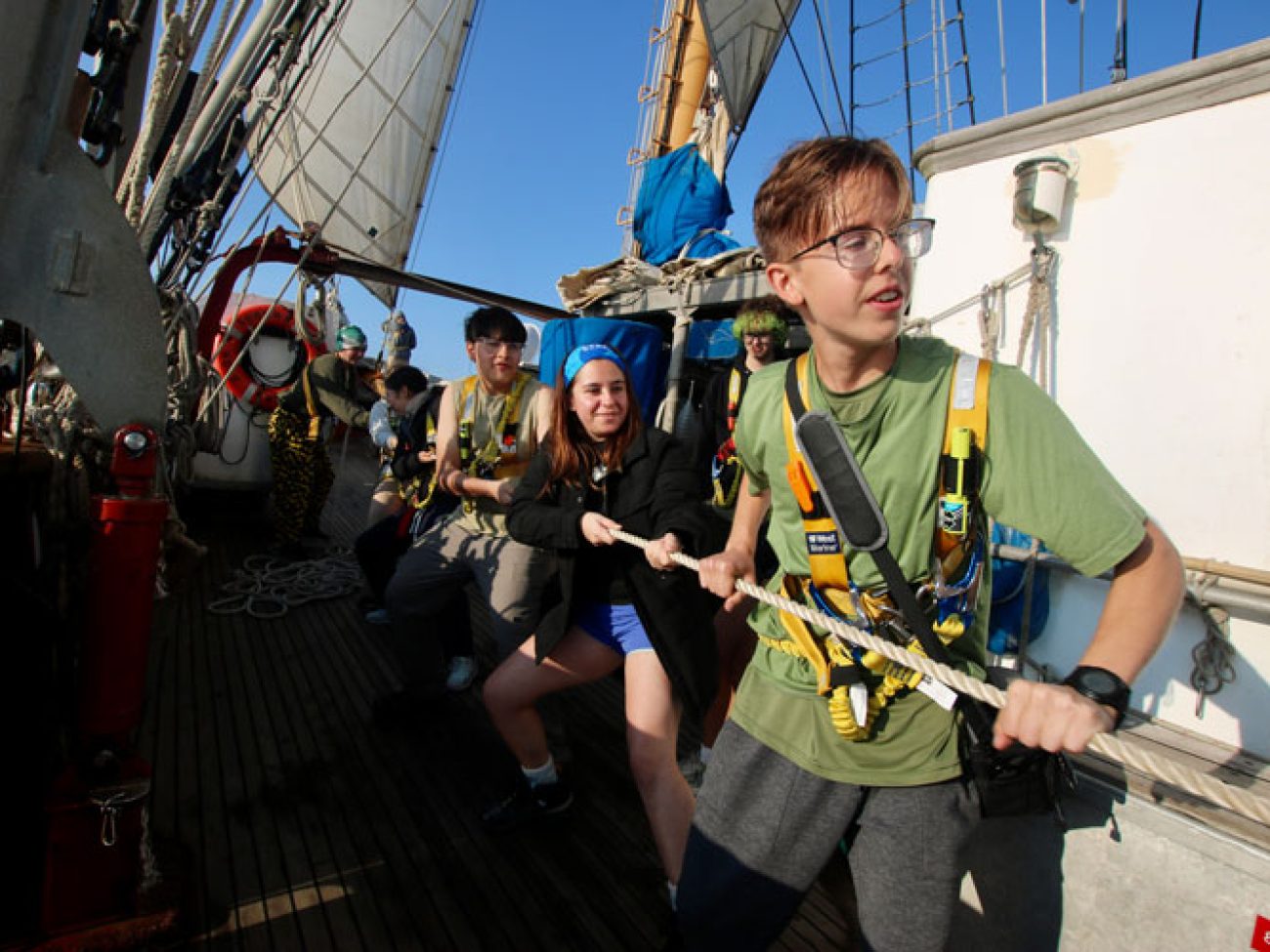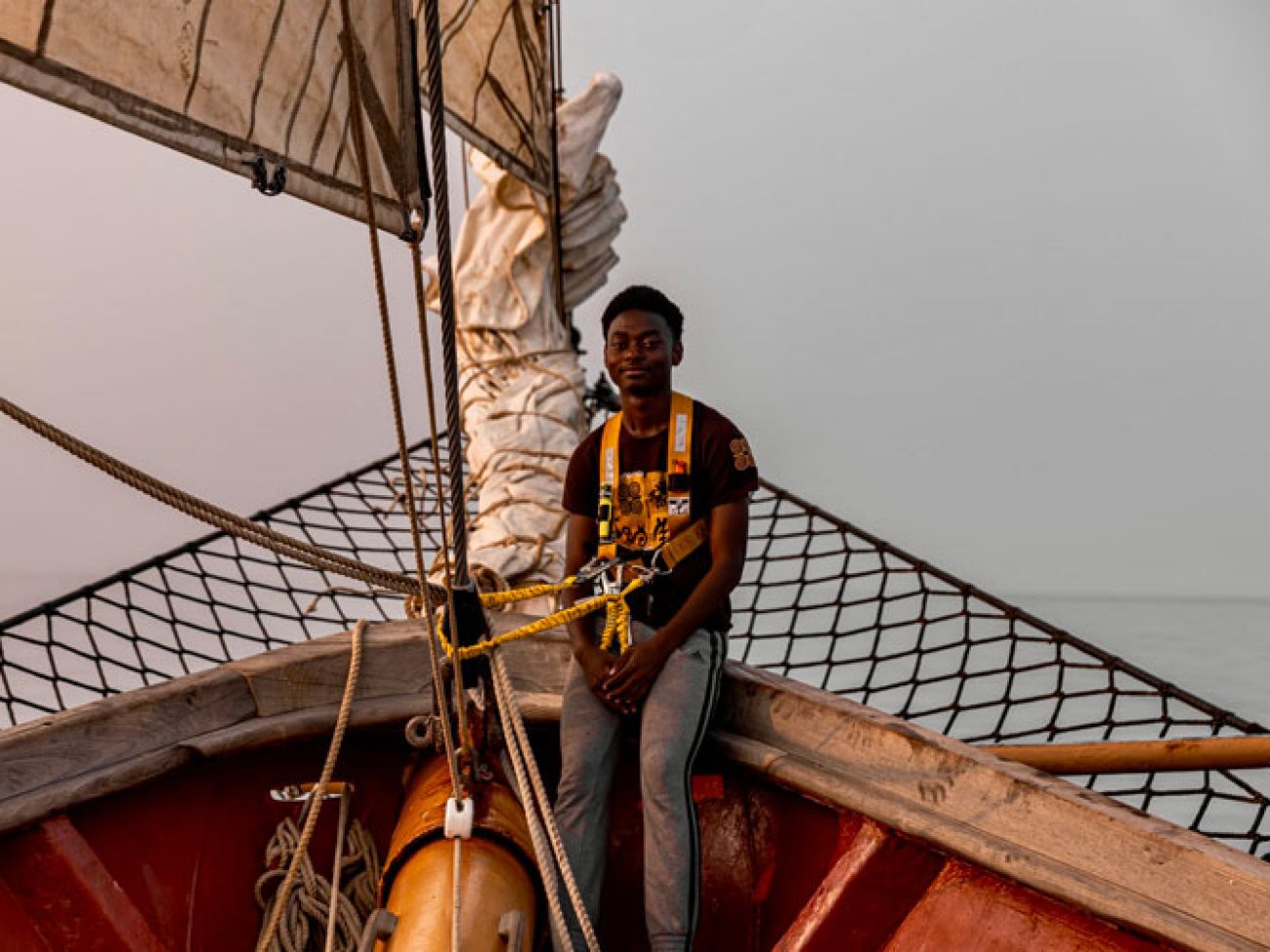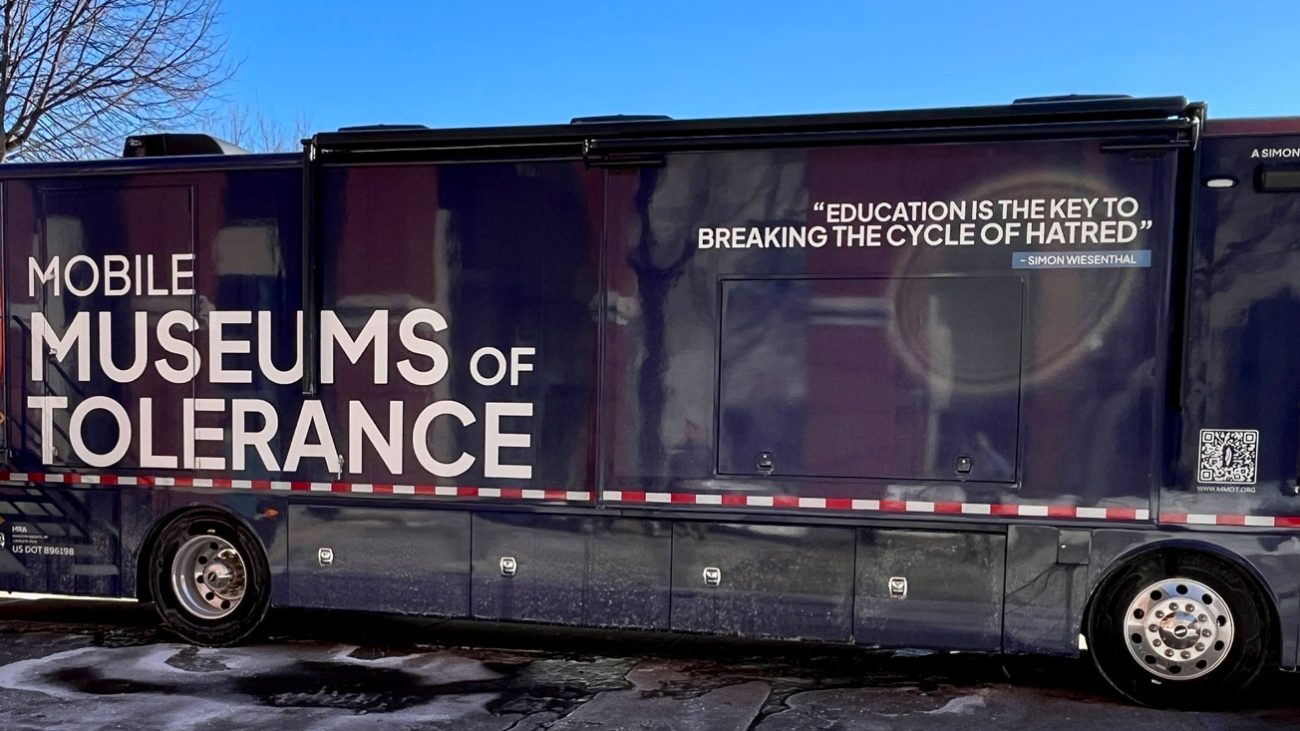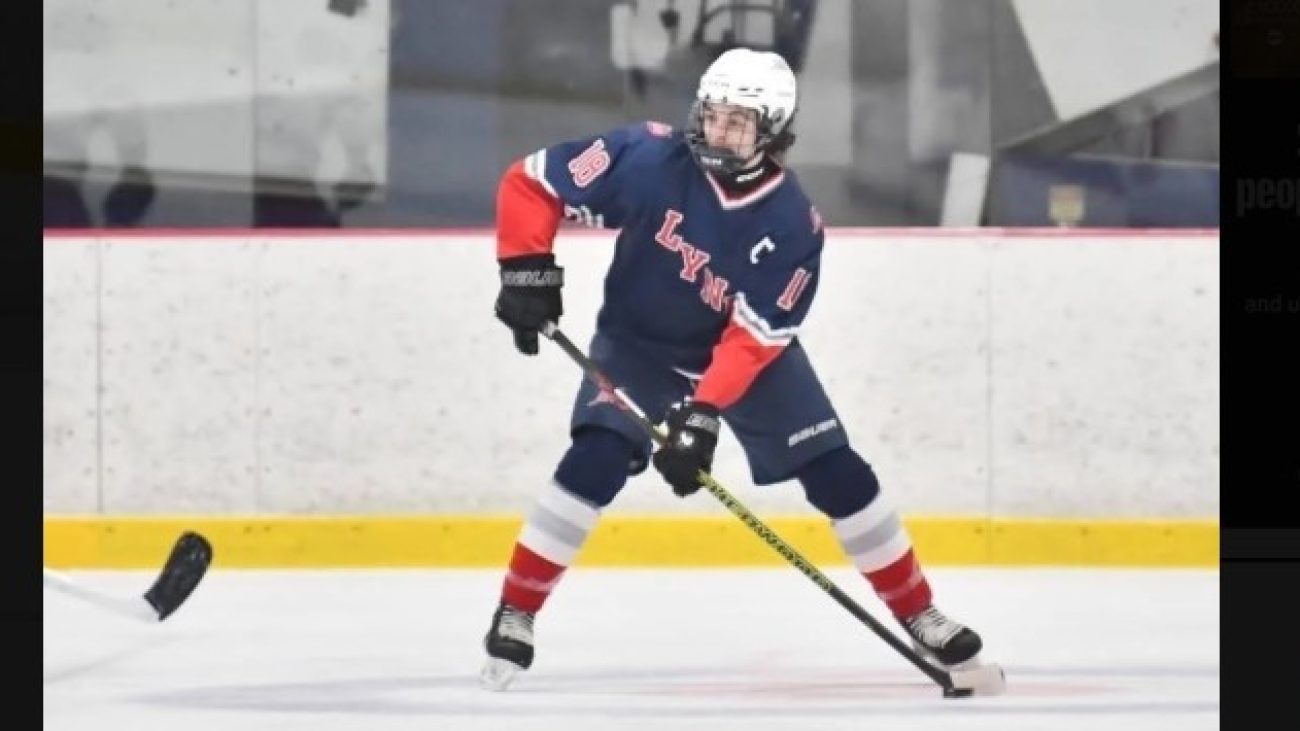Salem High School Seniors Guywintz Jules, Rylan Workman Adapt and Thrive in SEA Expedition Program
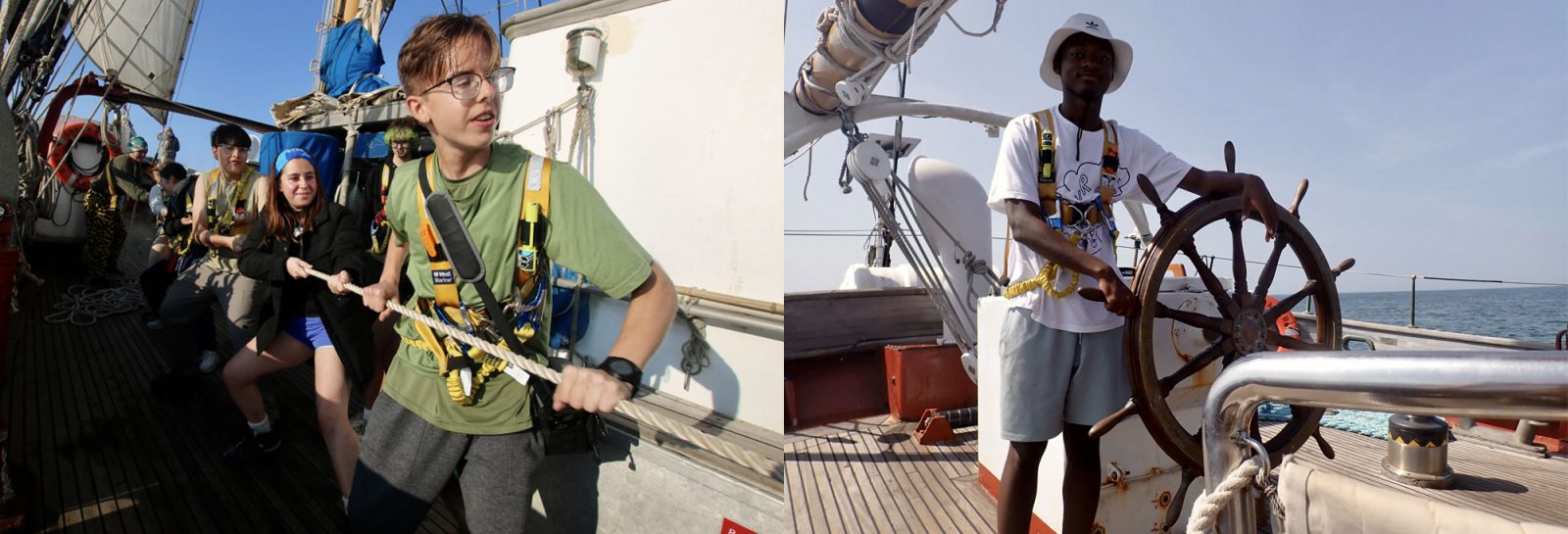
SHS seniors spent two weeks at sea collecting plankton, living the rigors of sea research
SALEM (Sept. 30, 2025) – Their respective career paths may differ from marine biology or oceanography, but the two weeks they spent at sea during the summer will undoubtedly benefit the college and career pathways Rylan Workman and Guywintz Jules have chosen.
Both Salem High School seniors, Mr. Workman and Mr. Jules each spent two weeks on the ocean over the summer – Mr. Workman from June 30-July 11, Mr. Jules Aug. 1-12 – with the SEA Expedition High School and Pre-College Program with roughly 25 students and crew from around the world.
They conducted research, observed weather and ocean swells, steered the ship (the sailing school vessel Corwith Cramer), and even washed dishes, in accordance with the six hours on/12 hours off shifts.
Neither Mr. Workman or Mr. Jules plan to study ocean research – they will pursue environmental engineering and pre-medicine with a focus on neurology, respectively – but agreed they will take the experience with them. They worked in teams, heavily reliant on students they had just met, worked through the night, at the mercy of the sea.
“I explored my curiosity during the SEA Expedition, with me and my new friends spending time after watch, categorizing zooplankton and phytoplankton,” said Mr. Workman. “I read engineering manuals for scientific equipment, and focused on every learning experience. This really allowed me to get the most out of the program, and I will be sure to maximize my education in the future.”
Said Mr. Jules: “I learned how to adapt to my environment in a short amount of time and I learned how to collect different kinds of data that will help future research or diagnosis.”
When told about the opportunity by SHS science educator Graeme Marcoux, Mr. Workman said it was the research component that attracted him. Mr. Jules credits his AP biology class, which covered different ecosystems and organisms, as his impetus.
Still, each had to apply and earn acceptance for the trip.
“We knew that they would both benefit from an incredible, immersive science experience like that being offered by SEA,” said Mr. Marcoux. “Both Rylan and Guywintz had proven themselves to be exceptional students in their science classes and as a result had an excellent foundation of theoretical and lab based science understanding. Jaclyn (Burns, SHS Instructional Science Coach) and I both agreed that the experience offered by SEA would vastly amplify what both students already brought to the table.”
Both Mr. Jules and Mr. Workman were awarded scholarships through the Norman H. Read Trust, supporting the District’s Strategic Plan core value of elevating learning.
The research conducted on the Woods Hole, Mass.-based SSV Corwith Cramer centered around plankton, which are microorganisms such as jellyfish, krill and small crustaceans, vital to the ocean’s ecosystem and food chain.
“We took samples to see how much chlorophyll was in the water to identify the level of photosynthesis happening,” said Mr. Jules. “This tells us how much phytoplankton (a type of algae that performs photosynthesis) is in the water.”
Following two days of training, the SSV Corwith Cramer navigated from Martha’s Vineyard north to the Gulf of Maine. Teams of students rotated shifts, the many tasks involved repeated lifeboat functioning checks, organizing lines and deploying sails, serving as lookout for vessels and buoys, and observing activity in the engine room below deck.
“With six-hour shifts at random periods of the day, it took a lot of determination to commit myself entirely to my duties,” said Mr. Workman. “I remember when a student on my shift fell asleep, and we were not relieved from our dawn shift until 2 a.m., one hour after expected. But still, we stood there, performed our duties, and pushed on. A boat cannot run itself, so the SEA expedition demanded collective effort.
“We maintained a checklist and a journal,” he added. “We learned to use a hydrowench to deploy science equipment off the boat, which would collect the plankton and enable us to identify organisms.”
One of the biggest challenges of the expedition came on the second and third days: sea sickness, something neither Mr. Workman nor Mr. Jules was unable to stave off. “On the second day at sea, I got sick,” Mr. Jules noted.
While the weather was largely sunny and pleasant for Mr. Jules’ excursion, Mr. Workman encountered showers one day, making for rough seas while he was on the helm of the ship.
“The third or fourth day was the roughest,” Mr. Workman noted.
Whales and dolphins were abundant. In fact, the early morning shift – 1 a.m.-7 a.m. – proved to be very popular. “You could hear (whales) spouts going off,” Mr. Workman said.
The work was demanding, particularly for the first few days as the students and crew were still familiarizing themselves with the responsibilities and one another. Students were also without their mobile phones for the entire excursion, although Mr. Jules noted it was hardly a sacrifice.
“There were so many things to do, you’re not going to miss your phone too much,” he said. “The first few days were awkward, but everyone was in the same situation.”
While Mr. Jules and Mr. Workman are believed to be the first SHS students to earn selection for the SEA Expedition Program, they will likely not be the last.
“I am so happy that they both eventually applied and were selected for the program and I look forward to offering this opportunity to other science students at SHS,” said Mr. Marcoux. “As someone who was lucky enough to participate in similar science expeditions as a student I can say, without a doubt, that our students will remember these experiences for the rest of their lives.”
About Salem Public Schools
Salem Public Schools is an urban public school district in Salem, Massachusetts, a small, diverse city with a proud maritime and immigrant history. Our leaders and our teachers are passionate about education and understand the urgency of improving student achievement with equity and social-emotional needs as the lens through which we view our work. We respect and value the racial, cultural, and linguistic diversity of our students and their families, and have a strong commitment to the Salem community. Salem Public Schools staff unconditionally serves each of our 4,000 students across 11 schools regardless of ability or language.

